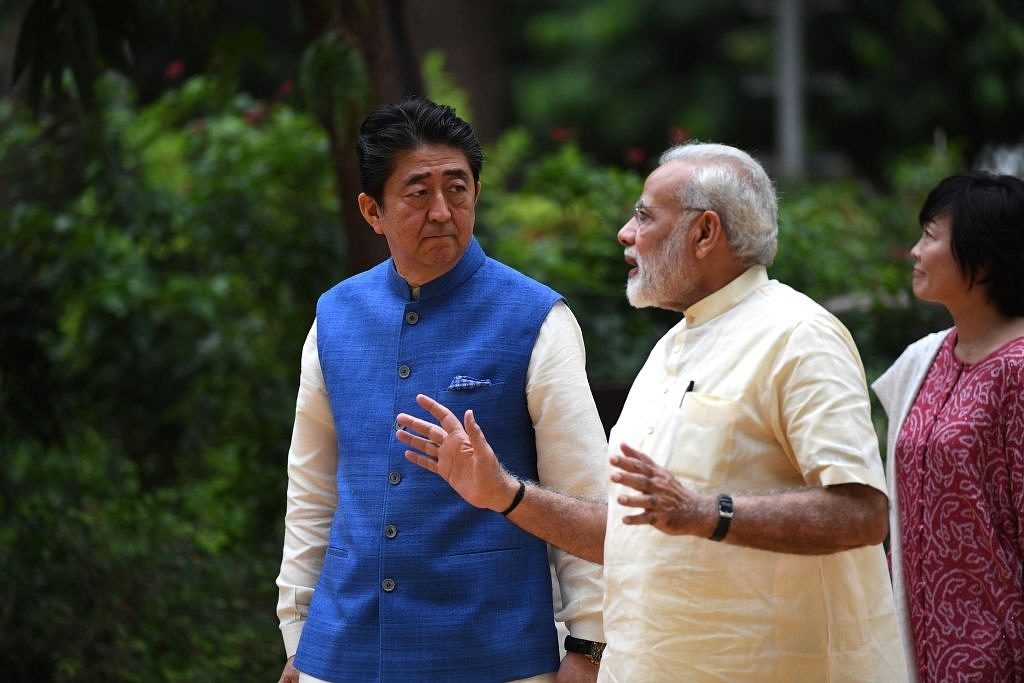Context
How Indo-Japanese Relations Developed Under Shinzo Abe

Japanese Prime Minister Shinzo Abe (L) with Prime Minister Narendra Modi (C) in Ahmedabad on 13 September 2017. (PRAKASH SINGH/AFP/GettyImages)
As India is observing a day of national mourning as a sign of respect towards former Japanese PM Shinzo Abe, let's have a look at how the relations between the two countries flourished under him.
The QUAD: Abe delivered a speech "Confluence of the Two Seas" in 2006 that laid the foundation of 'Indo-Pacific' concept.
He argued that the Indian and the Pacific Ocean must not be seen as two different geopolitical arenas but instead as a single integrated geopolitical theatre.
Abe returned to office in 2012 and backed his vision of a security diamond with a will to revive the QUAD.
Even after stepping down, Abe was continuing to work on strengthening the QUAD. He attached Indo-Pacific to strengthening the bilateral relationship between India and Japan.
Infrastructure: Under his watch, Japan invested heavily in Indian infrastructure, including in the sensitive parts of India's North East.
The bullet train project is the largest with Japan providing around 81 per cent of the funding for the project in the form of a loan worth $12 billion, at a cost of 0.1 per cent, for a 50-year period including a 15-year moratorium.
It became the first foreign country to be allowed to invest in the Andaman and Nicobar Islands and is assisting India in developing civilian and strategic infrastructure there.
JICA signed an agreement with India to provide $610 million for the North-East Road Network Connectivity Improvement Project. India-Japan Coordination Forum for Development of North East was set to focus on strategic infrastructure, electricity and disaster management.
Defence: The two countries have shared concerns about China, with which both have major territorial disputes.
Under Abe, Japan became a permanent member of the Malabar Exercise between India and the US in 2015, and is also engaged with India and Australia in a trilateral dialogue.
The two countries advanced their cooperation in the maritime security domain, signed agreements on defence technology transfers and agreed to share classified military information.
India also improved security partnership with Australia, arguably Japan’s second most important strategic partner. Australia and India held their first ever bilateral naval exercises in 2015.
Support Swarajya's 50 Ground Reports Project & Sponsor A Story
Every general election Swarajya does a 50 ground reports project.
Aimed only at serious readers and those who appreciate the nuances of political undercurrents, the project provides a sense of India's electoral landscape. As you know, these reports are produced after considerable investment of travel, time and effort on the ground.
This time too we've kicked off the project in style and have covered over 30 constituencies already. If you're someone who appreciates such work and have enjoyed our coverage please consider sponsoring a ground report for just Rs 2999 to Rs 19,999 - it goes a long way in helping us produce more quality reportage.
You can also back this project by becoming a subscriber for as little as Rs 999 - so do click on this links and choose a plan that suits you and back us.
Click below to contribute.
Latest